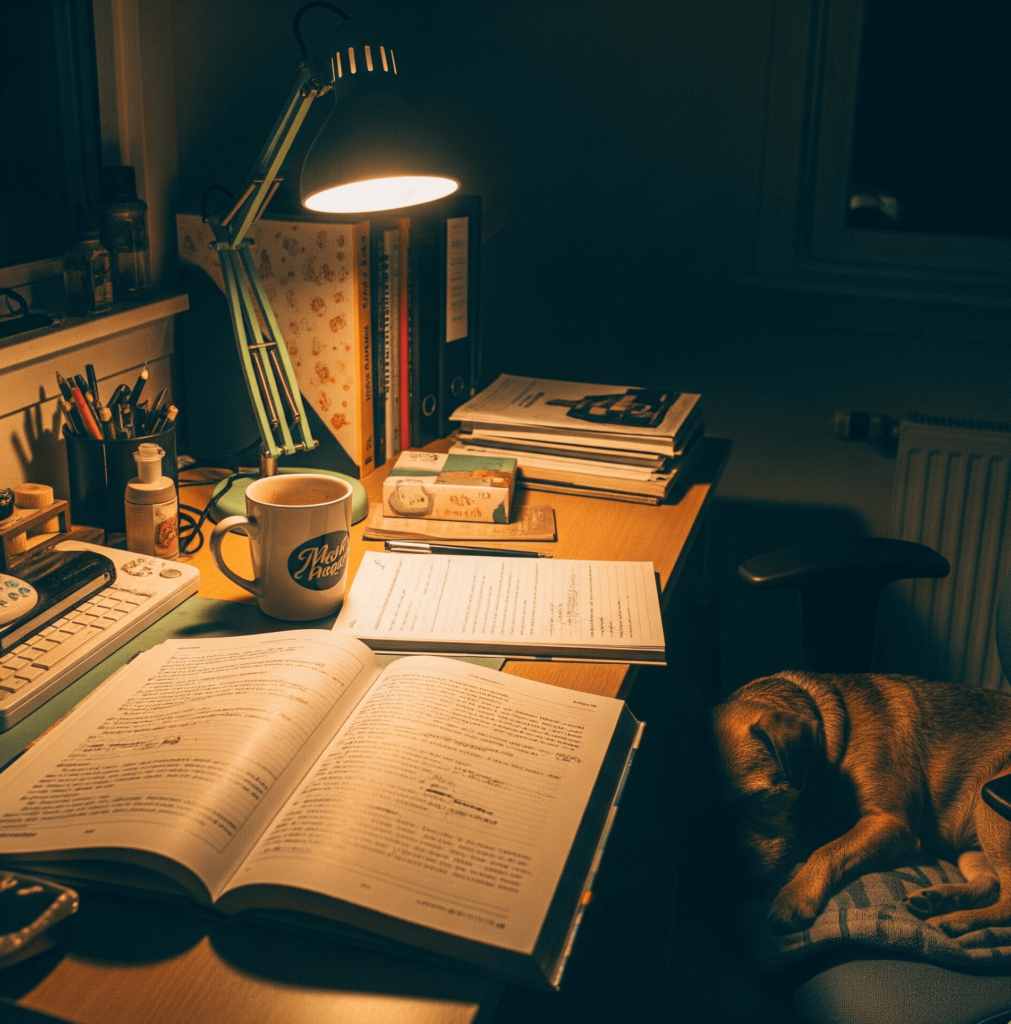Prepare for exams is my personal nightmare, yo. I’m hunched over in my cramped Denver apartment, surrounded by empty coffee cups and a pile of flashcards I swore I’d organize. My cat’s knocking pens off my desk, and my phone’s buzzing with X notifications I’m too stressed to check. I’m 30, juggling a retail job, and trying to study for exams without losing my entire mind. Here’s my messy, real-deal take on how to prepare for exams without burning out in 2025, complete with my dumb mistakes and some exam prep tips I’ve learned the hard way.
Why Exam Prep Makes Me Wanna Scream
I’m garbage at preparing for exams. I once stayed up until 4 a.m. cramming for a history test, only to fall asleep on my textbook and drool all over the American Revolution. But exam study hacks are a lifesaver—Healthline says chronic stress from studying can tank your health, so avoiding burnout is legit clutch. These tips are my attempt to stay focused without turning into a zombie.

My 11 Prepare for exams Tips
Here’s my list of exam prep tips to help you prepare for exams without losing it.
Chill Out a Bit: I stress so hard I cry sometimes. Deep breaths help, I swear.yone else seems to have it all together” spiral. Put your phone away. Seriously. Or use an app that blocks distracting websites. (Not gonna lie, I still struggle with this one. My phone and I have a complicated relationship. It’s like, “You complete me!” and I’m like, “No, you just distract me from completing this essay!”)
Make a Study Schedule: I scribble a plan in my notebook to break up topics. Helps me feel less doomed.
My Dumb Moment: I planned to study math but watched X reels about conspiracy theories instead. Oops.
Use Active Recall: Quiz yourself instead of re-reading notes. I make flashcards, even if my cat eats half of ‘em.
Cringe Alert: I mixed up my biology flashcards and studied the wrong chapter. Kill me.
Take Breaks, Yo: I do 50-minute study sprints with 10-minute breaks. Keeps my brain from frying.
Find a Study Spot: I hit up a coffee shop to avoid my messy apartment. Fewer distractions, more vibes.
My Fail: I forgot my charger at the coffee shop and my laptop died mid-quiz. Classic.
Prioritize Weak Spots: Focus on what you suck at. I’m terrible at stats, so I hit that first.
Use Study Apps: Quizlet’s my go-to for flashcards (check it here).
Oops: I spent an hour making Quizlet cards look pretty instead of studying.
Sleep, For Real: I pulled an all-nighter once and bombed a test. Sleep helps you remember stuff.
Eat Something Decent: I live on ramen, but eating a veggie or two keeps me from crashing.
Practice Past Exams: I found old tests online and practiced. Made me less freaked out.
Embarrassing Bit: I misread a practice question and argued with my professor about it. I was wrong.
Stay Hydrated: I keep a water bottle nearby. Coffee’s great, but dehydration’s a jerk.

How I Keep Screwing Up Prepare for exams
Real talk: preparing for exams is not my forte. I once spent two hours making a study playlist instead of reviewing chemistry—yep, I’m that idiot. Here’s what I’ve learned from my chaos:
- Focus on What’s Hard: Hit your weak subjects first. Harvard’s study tips back this up (read here).
- Tech’s Your Friend: Apps like Notion keep my notes organized. I thought they were lame, but they’re legit.
- Don’t Cram: I tried cramming and forgot everything by test day. Space out your studying.
- Learn from Fails: I bombed a quiz because I was on X during a study session. Now I silence my phone.
Healthline says short breaks can boost focus by 15%, which I’m trying to do without derailing into a Netflix binge.
Finding Your Own Exam Prep Groove
Picking exam study hacks is like choosing a coffee order—personal and kinda stressful. Here’s my advice, straight from my coffee-stained desk:
- Know Your Peak Time: I’m useless before noon, so I study at night. When’s your brain on fire?
- Start Small: Don’t try all 11 tips at once. I did and lost it. Pick a couple to start.
- Use Cool Tools: Quizlet’s free and makes studying feel like a game. Anki’s good too (check Anki).
- Check Your Progress: I review my notes every Sunday. Sounds nerdy, but it shows me where I’m slacking.
Wrapping Up My Exam Prep Chaos
So, yeah, I’m still a mess at preparing for exams, sitting here in my Denver chaos with my cat judging my life choices. I’ve cried over bad quiz grades, eaten too much ramen while studying, and still forget to charge my laptop sometimes. But these exam prep tips have kept me from totally tanking. Check out Healthline or Harvard’s study guides for more study for exams advice if you’re curious.









